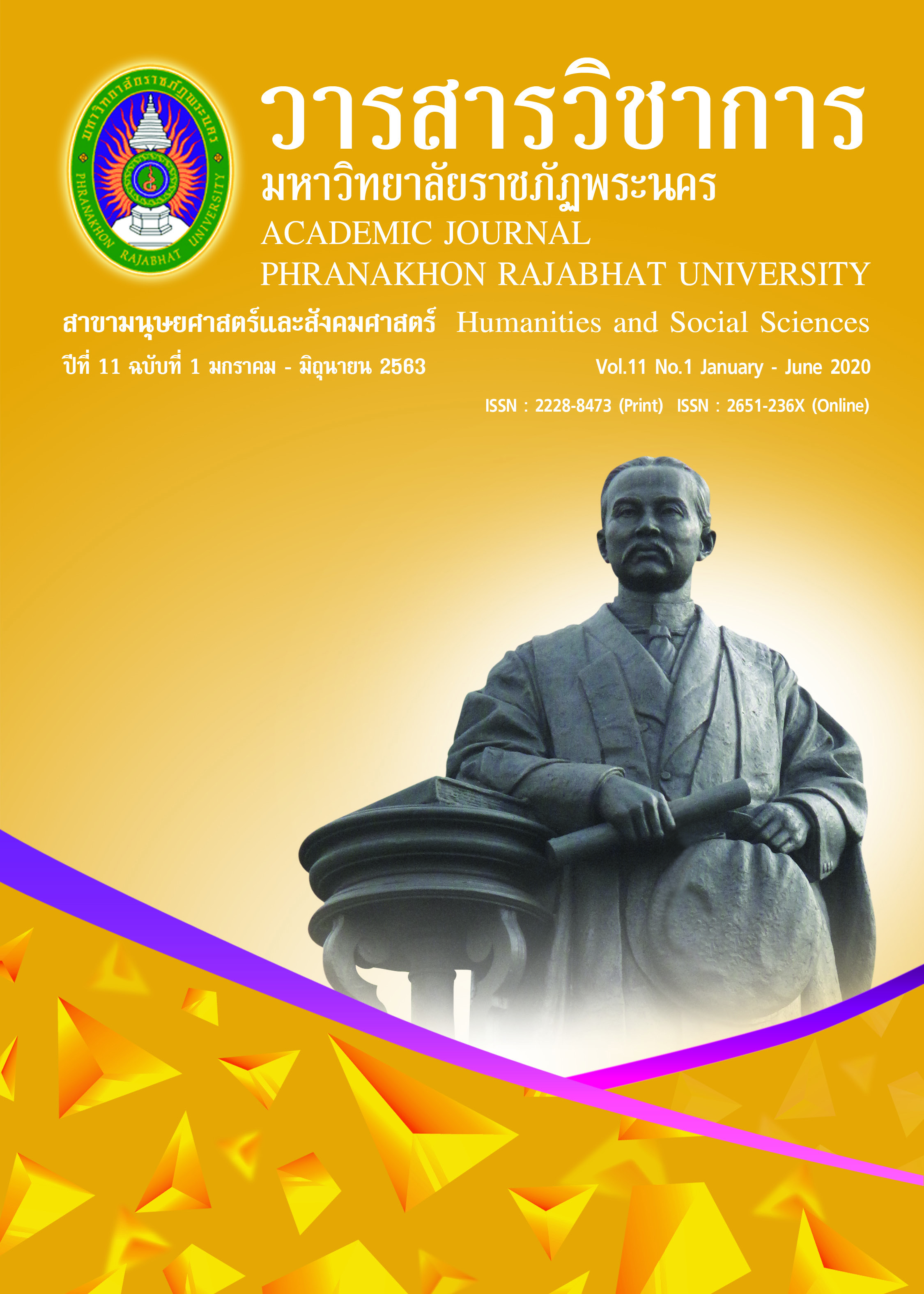THE APPROACHES OF ACADEMIC MANAGEMENT AT SIRIWATWITTAYA SCHOOL BASED ON THE CONCEPT OF ENHANCING STUDENTS’ SELF – ESTEEM
Keywords:
academic management, self – esteem, enhancing self – esteemAbstract
The purposes of this research were: 1) to study the current state and desirable state of academic management and enhancing students’ self – esteem, and 2) to present the approaches for developing academic management to enhance students’ self – esteem. The population was the member of Siriwatwittaya School. There were 24 informants included the administrators and teachers. The research instruments were questionnaires (rating scale) and suitability and possibility of evaluation forms (rating scale). The data were analyzed by frequency distribution, percentage, mean, standard deviation, PNI modified, and mode. The results were as follows: the current and desirable state of academic management based on the concept of enhancing students’ self - esteem were in the high level ( = 4.167) and the highest level ( = 4.916). The first priority needs index was the instruction (PNI = 0.184); the second priority needs index was the instruction. (PNI = 0.182); and the last priority needs index was the assessment (PNI = 0.168). There were 3 approaches of academic management. The approaches sort by priority needs index were the curriculum development approach, the instruction approach, and the assessment approach.
References
Achtenhagen, F. (2012). The Curriculum-instruction-assessment. Empirical Research in Vocational Education and Training, 4(1), 5-25.
Ahmad, I., Zeb, A., Ullah, S., & Ali, A. (2013). Relationship between self-esteem and academic achievements of students: A case government secondary schools in district Swabi, KPK, Pakistan. International J. Soc. Sci. & Education. 3(2). 361.
Baldanza, M. (2016). Professional practices for the 21st century leader. Just ASK Publication & Professional Development. 1(4), 1-10.
Barry, P. D. (1989). Psychosocial nursing: Assessment and intervention / care of the physically III Person (2nd ed.). Philadelphia: J. B. Lippincott.
Borich, G. D., & Tombari, M. L. (1995). Educational psychology: A contemporary approach (2nd ed.). New York: Longman Publish Group.
Coopersmith, S. (1967). The Antecedent of self – esteem. New York: W. H. Freeman.
Coopersmith, S. (1981). The Antecedent of self – esteem. California: Consulting Psychologists Press.
Council of Ministers of Education, Canada (CMEC). (2008). Education in Canada. Ontario: Canadian Information Centre for International Credentials.
Hewitt, J. P. (2009). Oxford handbook of positive psychology. Oxford University Press.
James, W. (2007). The principles of psychology. Vol.1. New York: Cosimo.
Marzano, R. J. (2003). Classroom management that works: Research–based strategies for Every Teacher. USA: Association for Supervision and Curriculum Development.
Maslow, A. H. (1987). Motivation and personality (3rd ed.). New York: Harper & Row.
National Education Act B.E.2553. (2010, 22 July). Government Gazette. Vol. 127 part 45 A. Page 1 – 19. (in Thai)
National Policy Board for Educational Administration (CCSSO). (2015). Professional Standards for Educational Leaders 2015. Reston, VA: Author.
Phuprasert, K. (2011). Academic Management in School. Bangkok: Tips Publication. (in Thai)
Shore, K. (2012). Classroom problem solver: The student with low self – esteem. Retrieved from https://www.educationworld.com/a_curr/shore/shore059.shtml
Taba, H. (1962). Curriculum Development: Theory and practice. New York: Harcourt, Brace & World.
Tosti, D. T., & Ball, J. R. (1969). A Behavioral approach to instructional design and media selection. AV Communication Review, 17(1), 5-25.
Tosti, D. T., & Harmon, N. P. (1973). The Management of Instruction. Educational Technology Research and Development. 21(1), 31-43. doi:10.1007/BF02770827
Wonganutrohd, P. (2010). Academic Management. Bangkok: Supplementary Media Center. (in Thai)
Downloads
Published
How to Cite
Issue
Section
License
"บทความวิชาการในวารสารฉบับนี้ ถือเป็นความรับผิดชอบของผู้เขียนเท่านั้น"
สงวนลิขสิทธิ์ตามพระราชบัญญัติลิขสิทธิ์




